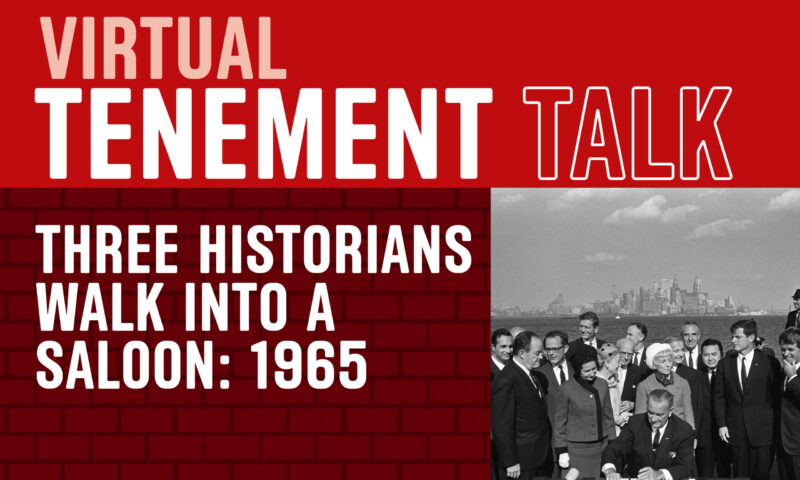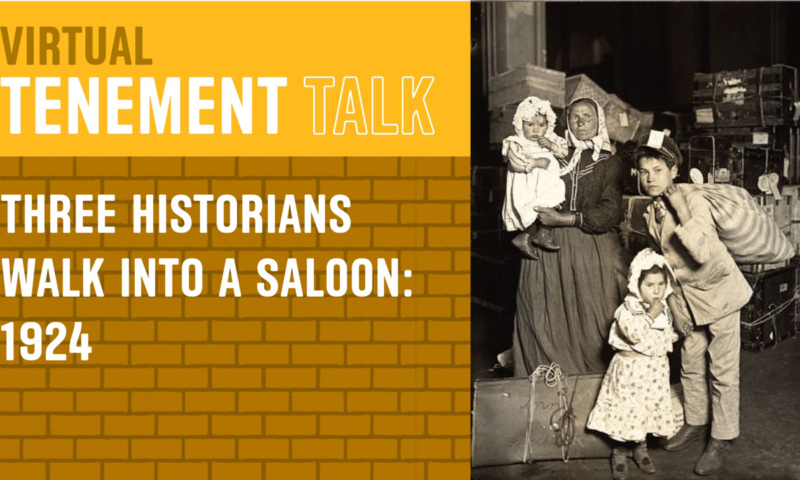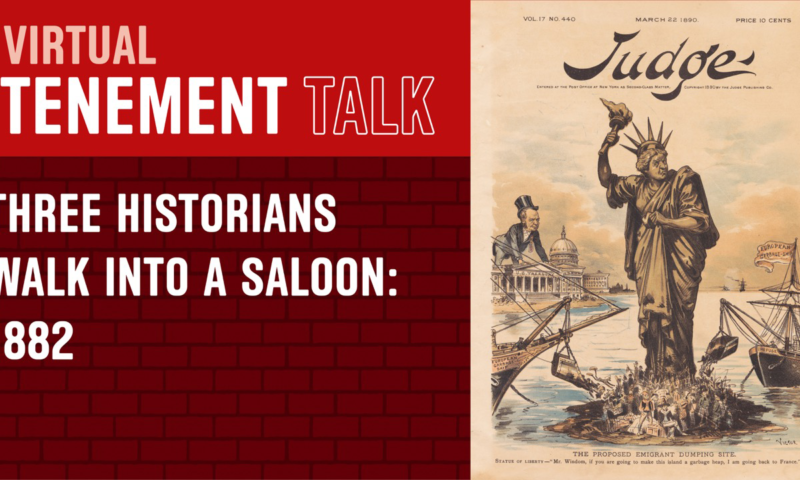‘Three Historians Walk Into a Saloon‘ is our newest virtual Tenement Talk mini-series. Set in our 19th-century recreated lager beer saloon, where people gathered to read newspapers and debate the headlines, this series features today’s leading historians reliving some of the topics discussed long ago and delving into important turning points in our country’s history. What are the different ways amendments and laws changed ideas of what it meant to be American? Who was included and who was excluded? We’ll examine the laws’ impacts on the nation, and also how they were received by the Irish, Black, Italian, Jewish, German, Italian, Chinese and Puerto Rican residents of our NYC tenements. While the conversations focus on different moments in the past, they are animated by present-day questions.
Immigration Policy
Tenement Talk: Three Historians Walk Into a Saloon – 1948
In April of 1947, Kalman and Rivka Epstein arrive in New York City as part of the first group of Holocaust survivors to come to the United States. The United States did not yet have a status of “refugee,” and their arrival was only made possible through an Executive Order from President Truman. The Hebrew Immigrant Aid Society sponsored their arrival, as did Kalman’s family in the Lower East Side, helping them settle, find jobs, and enroll in English classes. The Epsteins were among the 1 million people in Europe displaced by World War II and the Holocaust—most of whom were unable to come to the United States because of existing immigration law.
Enjoy the fourth installment of our ‘Three Historians Walk Into A Saloon‘ mini-series, focusing on the 1948 Displaced Persons and Refugee Act.
What were the debates among American communities, and in Congress, about welcoming refugees? What was the climate that the Epsteins and others entered in the years after the war, and how does this compare to the experiences of refugees and displaced people today?
Tenement Museum President Dr. Annie Polland was joined at the table by Hasia Diner, author of We Remember with Reverence and Love: American Jews and the Myth of Silence after the Holocaust, and David Nasaw, author of The Last Million: Europe’s Displaced Persons from World War to Cold War.


